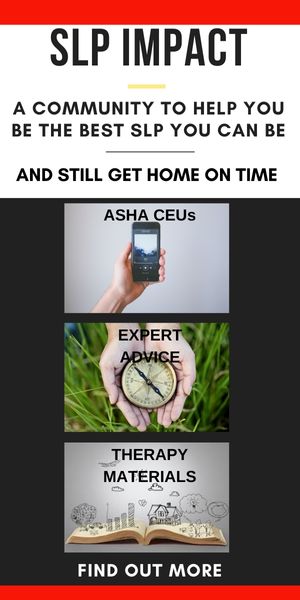Congratulations on your recent graduation! You have studied, read research papers and seen clients. You are ready to tackle the best profession on earth. Likely, you are looking for a job that suits your SLP mind and heart needs. Regardless of your placement during your CFY year, here are some tips for your first few sessions:
1. Rapport building is important for all first sessions (whether you are working with children or adults). What does this look like? When working with the child, take the time to know the whole child. What are his favorite toys, books, activities? Typically, for an assessment, I will find out this information prior to the evaluation. This goes a long way, and I always feel like I have a jump start on our relationship–and our goals and objectives! Also, I feel that taking the time to sincerely speak to the parents about their child’s concerns and successes is key.
“Tell me about your biggest concerns.”
“Talk to me about the improvements you have seen.”
“What strategy worked best for Joey?”
I do feel it is important to have the correct assessment tools and understand the procedures. However, understand that not all sessions go according to plan. Taking the time to communicate and play with the child builds rapport and yields important information. Informal data, such as a language sample, can be fruitful for goals and objectives. Here is a link on how to obtain a language sample in four easy steps.
2. As clinicians, we are continually taking data. This part of our job can have many varied looks: giving a standardized test, having a silly (and fruitful) conversation with the child, playing with age-appropriate toys. Keep in mind that baseline data can be obtained through natural interactions. For me, if the child is between the ages of 2-5, I will do a play-based assessment. This may look like “play” to most individuals. However, for SLPs, play can tell us a great deal about receptive language abilities, expressive language skills, articulation, fluency, voice, and social skills. For older students, I use books, books, books. Asking a child to retell or tell a story will give you useful and functional information. You can ask the child to talk about her favorite book (“From the very beginning to the very end, tell me about your book.”) or favorite movie or TV show.
3. The great thing about our profession is that we are continually learning. Being open and transparent to our clients can be helpful. A few years ago, I had a potential referral in the schools for a student with a tongue thrust. With little experience in this area, I was honest with the mother. I stated that I was not sure of how to proceed; however, I knew where to look for answers. I reached out to my SLP-community (an intelligent and loving community), got answers, started early interventions for the student and kept the mom informed of the entire process. Personally, I feel it’s how we tackle our challenges that matters the most.






